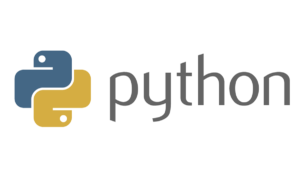Метод pop() словаря Python удаляет и возвращает указанный элемент из словаря.
Синтаксис : dict.pop(key, def)
Параметры :
key : Ключ, пара "ключ-значение" которого должна быть возвращена и удалена.
def : Значение по умолчанию, возвращаемое, если указанный ключ отсутствует.
Returns (Возвращает) : Значение, связанное с удаленной парой ключ-значение, если ключ присутствует.
Значение по умолчанию, если указано, если ключ отсутствует.
Ошибка ключа, если ключ отсутствует и значение по умолчанию не указано.Пример Метод pop() словаря Python
Пример 1: Вставьте элемент от словарь
# Python 3 code to demonstrate
# working of pop()
# initializing dictionary
test_dict = {"Nikhil": 7, "Akshat": 1, "Akash": 2}
# Printing initial dict
print("The dictionary before deletion : " + str(test_dict))
# using pop to return and remove key-value pair.
pop_ele = test_dict.pop('Akash')
# Printing the value associated to popped key
print("Value associated to poppped key is : " + str(pop_ele))
# Printing dictionary after deletion
print("Dictionary after deletion is : " + str(test_dict))
Выход:
The dictionary before deletion : {'Nikhil': 7, 'Akshat': 1, 'Akash': 2}
Value associated to poppped key is : 2
Dictionary after deletion is : {'Nikhil': 7, 'Akshat': 1}Пример 2: Первый элемент pop словаря Python
# Python 3 code to demonstrate
# working of pop()
# initializing dictionary
test_dict = {"Nikhil": 7, "Akshat": 1, "Akash": 2}
# Printing initial dict
print("The dictionary before deletion : " + str(test_dict))
# using pop to return and remove key-value pair.
pop_first = test_dict.pop("Nikhil")
# Printing the value associated to popped key
print("Value associated to poppped key is : " + str(pop_first))
# Printing dictionary after deletion
print("Dictionary after deletion is : " + str(test_dict))
Выход:
The dictionary before deletion : {'Nikhil': 7, 'Akshat': 1, 'Akash': 2}
Value associated to poppped key is : 7
Dictionary after deletion is : {'Akshat': 1, 'Akash': 2}Пример 3: Выберите элемент, отсутствующий в словаре
Поведение функции pop() является другое дело, когда ключа нет в словаре. В этом случае он возвращает значение по умолчанию или ошибку ключа, если даже значение по умолчанию не указано.
# Python 3 code to demonstrate
# working of pop() without key
# initializing dictionary
test_dict = {"Nikhil": 7, "Akshat": 1, "Akash": 2}
# Printing initial dict
print("The dictionary before deletion : " + str(test_dict))
# using pop to return and remove key-value pair
# provided default
pop_ele = test_dict.pop('Manjeet', 4)
# Printing the value associated to popped key
# Prints 4
print("Value associated to poppped key is : " + str(pop_ele))
# using pop to return and remove key-value pair
# not provided default
pop_ele = test_dict.pop('Manjeet')
# Printing the value associated to popped key
# KeyError
print("Value associated to poppped key is : " + str(pop_ele))
Выход:
The dictionary before deletion : {'Nikhil': 7, 'Akshat': 1, 'Akash': 2}
Value associated to poppped key is : 4
Traceback (most recent call last):
File "main.py", line 20, in
pop_ele = test_dict.pop('Manjeet')
KeyError: 'Manjeet'


